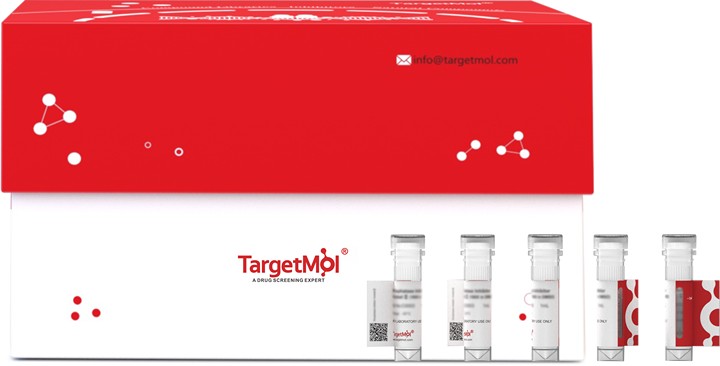Shopping Cart
- Remove All
 Your shopping cart is currently empty
Your shopping cart is currently empty

Catalyzes the phosphorylation of pyrimidine nucleoside monophosphates at the expense of ATP. Plays an important role in de novo pyrimidine nucleotide biosynthesis. Has preference for UMP and CMP as phosphate acceptors. Also displays broad nucleoside diphosphate kinase activity. UMP-CMP kinase/CMPK1 Protein, Mouse, Recombinant (His & SUMO) is expressed in E. coli expression system with N-6xHis-SUMO tag. The predicted molecular weight is 38.2 kDa and the accession number is Q9DBP5.

| Pack Size | Price | Availability | Quantity |
|---|---|---|---|
| 20 μg | $360 | 20 days | |
| 100 μg | $745 | 20 days | |
| 1 mg | $2,530 | 20 days |
| Biological Activity | Activity has not been tested. It is theoretically active, but we cannot guarantee it. If you require protein activity, we recommend choosing the eukaryotic expression version first. |
| Description | Catalyzes the phosphorylation of pyrimidine nucleoside monophosphates at the expense of ATP. Plays an important role in de novo pyrimidine nucleotide biosynthesis. Has preference for UMP and CMP as phosphate acceptors. Also displays broad nucleoside diphosphate kinase activity. UMP-CMP kinase/CMPK1 Protein, Mouse, Recombinant (His & SUMO) is expressed in E. coli expression system with N-6xHis-SUMO tag. The predicted molecular weight is 38.2 kDa and the accession number is Q9DBP5. |
| Species | Mouse |
| Expression System | E. coli |
| Tag | N-6xHis-SUMO |
| Accession Number | Q9DBP5 |
| Synonyms | Uridine monophosphate/cytidine monophosphate kinase,UMP-CMP kinase,Nucleoside-diphosphate kinase,Deoxycytidylate kinase,Cmpk1 |
| Amino Acid | MKPLVVFVLGGPGAGKGTQCARIVEKYGYTHLSAGELLRDERKNPDSQYGELIEKYIKEGKIVPVEITISLLKREMDQTMAANAQKNKFLIDGFPRNQDNLQGWNKTMDGKADVSFVLFFDCNNEICIERCLERGKSSGRSDDNRESLEKRIQTYLESTKPIIDLYEEMGKVKKIDASKSVDEVFGEVVKIFDKEG |
| Construction | 1-196 aa |
| Protein Purity | > 90% as determined by SDS-PAGE. |
| Molecular Weight | 38.2 kDa (predicted) |
| Endotoxin | < 1.0 EU/μg of the protein as determined by the LAL method. |
| Formulation | Tris-based buffer, 50% glycerol |
| Reconstitution | A Certificate of Analysis (CoA) containing reconstitution instructions is included with the products. Please refer to the CoA for detailed information. |
| Stability & Storage | Lyophilized powders can be stably stored for over 12 months, while liquid products can be stored for 6-12 months at -80°C. For reconstituted protein solutions, the solution can be stored at -20°C to -80°C for at least 3 months. Please avoid multiple freeze-thaw cycles and store products in aliquots. |
| Shipping | In general, Lyophilized powders are shipping with blue ice. Solutions are shipping with dry ice. |
| Research Background | Catalyzes the phosphorylation of pyrimidine nucleoside monophosphates at the expense of ATP. Plays an important role in de novo pyrimidine nucleotide biosynthesis. Has preference for UMP and CMP as phosphate acceptors. Also displays broad nucleoside diphosphate kinase activity. |

Copyright © 2015-2025 TargetMol Chemicals Inc. All Rights Reserved.